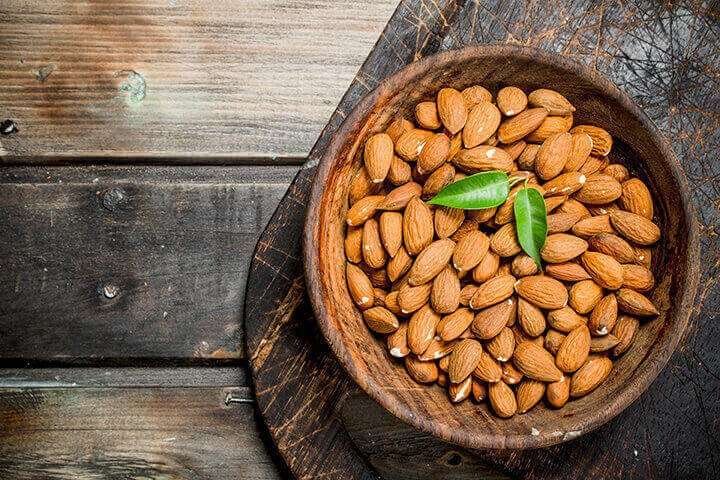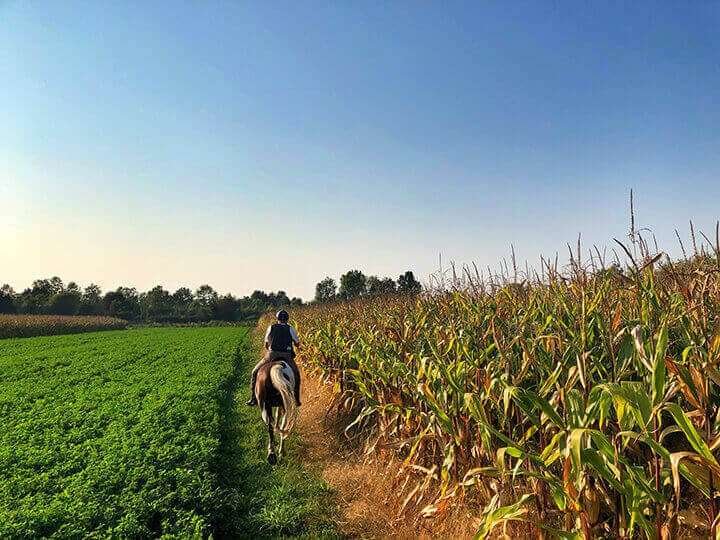Almonds in small, occasional amounts (1/4 cup almond flour/meal 1-2x/week) are OK for most horses, but not a regular dietary need. Consider their nutritional needs and potential choking hazards first. Horses love to have treats, and you can add variety to their diet by giving them almonds. Almonds are known to be one of the healthiest foods for humans, but are they good for horses? In this blog post, we will discuss the benefits and risks of feeding almonds to horses.
Can Horses Eat Almonds?
Yes, horses can eat almonds, but in moderate amounts. Almonds are a great source of essential nutrients such as Vitamin E, copper, manganese, biotin, healthy fats, and fiber. They are also good for the horse’s hoof health. Almonds are not nuts but fruits that are grown on trees along with leaves and dried-out shells.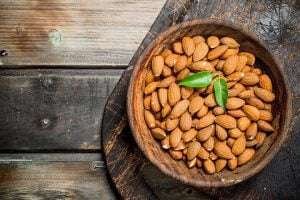
Almond Nutrition
Almonds are a nutritious food source for horses. They contain Vitamin E, biotin, mono-saturated and unsaturated fats, magnesium, copper, and other essential nutrients vital for a horse’s hoof health. Feeding almonds to horses can also help improve their immune system, and gastrointestinal health, and prevent inflammation.
Feeding Almonds to Horses
Almonds are not nuts but fruits that grow on trees like apples and oranges. When ready to be harvested, the dry hulls are removed. Both the nuts and hulls are healthy sources of nutrients for horses.  The almond hulls are fibrous and good for racehorses, especially, as they are high in fiberPellet and easy to digest. However, too many almonds in a horse’s diet can cause digestive issues, as the high-fat content may cause discomfort. Horses lack a gall bladder that helps in producing bile to break down fats.
The almond hulls are fibrous and good for racehorses, especially, as they are high in fiberPellet and easy to digest. However, too many almonds in a horse’s diet can cause digestive issues, as the high-fat content may cause discomfort. Horses lack a gall bladder that helps in producing bile to break down fats.
You May Like:
Can horses eat Almond and leaves?
It is important to note that almond leaves are not safe for horses to eat. Therefore, you should avoid feeding your horse the leaves of almonds, and also avoid feeding your horse the leaves of cherries, plums, and peaches, which are also poisonous. Almond leaves are toxic and contain Cyanogenic Glycosides, Purnasin, and Amygdalin, which can cause cyanide poisoning in horses.
Benefits of Feeding Almonds to Horses
Feeding almonds to horses can have several benefits, such as:
- Improving the horse’s overall immunity.

- Boosting the equine’s gastrointestinal health.
- Fight off inflammation that your horse may experience.
- Promoting good hoof health for your horse.
- Small amounts of almonds can have a healthy effect on your horse’s health.
- Almonds contain manganese, copper, vitamin E, biotin, and different fats that aid in good hoof health.
- Boosting the immune system of your horse.
- The compounds in almonds contribute significantly to your horse’s immune system.
Factors to Consider When Feeding Almonds to Horses
Here are some factors to consider when feeding almonds to horses:
- Almond Hulls: Dried hulls of almonds are safe and can be easily digested. They are an excellent source of fiber for horses.
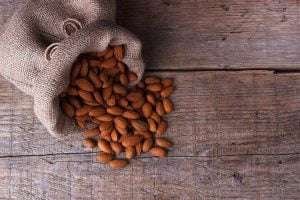
- Quantity of Almonds to be Fed: Feed almonds to your horse in moderate amounts, as too many almonds can cause digestive issues.
- Leaves of Almond Trees: Almond leaves are toxic and can cause cyanide poisoning in horses.
- Health Condition of Your Equine: Always consider the health condition of your horse before feeding almonds.
- Almond Butter: You can also feed almond butter to horses, but it should be in moderate amounts and free from any added sugars or salt.
Safe Amount of Almonds to Feed Your Horse
When it comes to feeding almonds to horses, it’s important to give them in moderation. Just like any other type of feed, too much can cause digestive issues.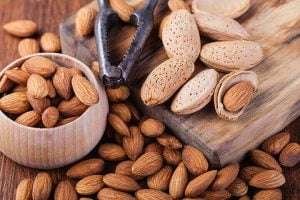 It’s recommended to feed your horse no more than 4-5 almonds per day, as this will provide the necessary nutrients without overloading their system.
It’s recommended to feed your horse no more than 4-5 almonds per day, as this will provide the necessary nutrients without overloading their system.
If you are unsure about feeding almonds to your horse or if they have any Pre-existing health conditions, it’s best to consult with your vet first. They can guide what types of feed are best for your horse and how much to give.
Conclusion
In conclusion, almonds can be a healthy treat for horses when given in moderation. They are a great source of nutrients that can help boost your horse’s overall health and well-being. However, it’s important to be aware of the potential risks, such as the toxic nature of almond leaves and the need to give them in moderation.
If you are unsure about feeding almonds to your horse or have any concerns about their health, it’s best to consult with your vet. With proper care and attention, you can help ensure that your horse stays happy and healthy for years to come.

